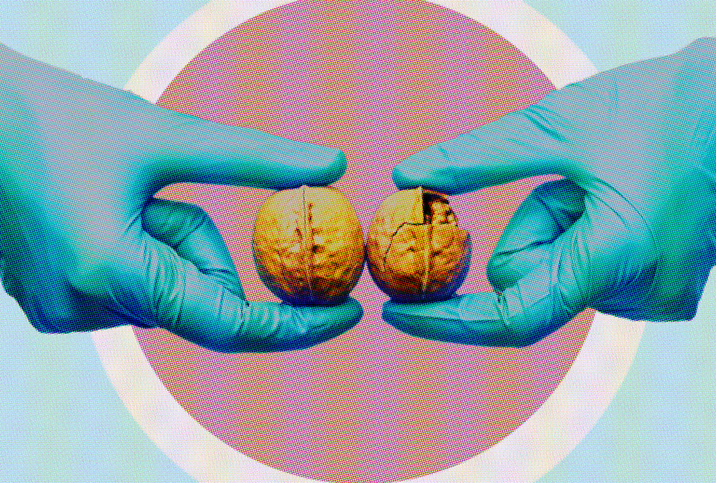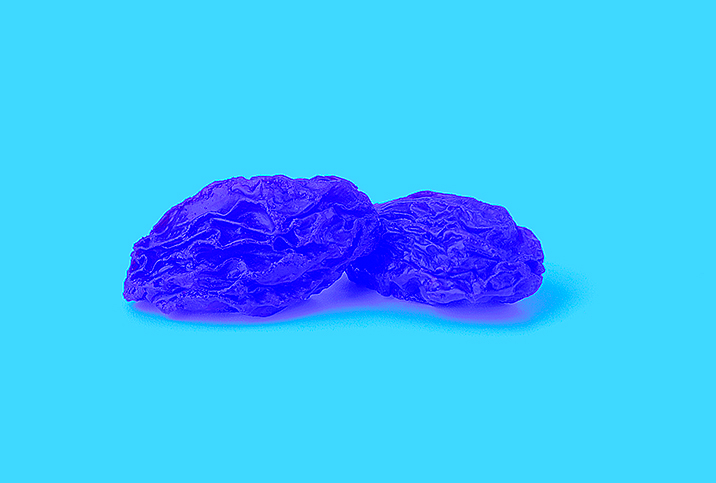Life After Testicular Cancer

Testicular cancer occurs disproportionally in younger adult men, ages 20 to 40, and is one of the less frequently diagnosed cancers, expected to affect about 9,500 men in 2021. Although testicular cancer treatment is extremely successful if the cancer is detected and diagnosed early—the five-year survival rate is approximately 95 percent—life for testicular cancer survivors will have changed in significant ways.
Even though you're likely elated your testicular cancer is gone, you may have nagging fears. You may be concerned it will come back. You may be worried your sexual health will be impacted. You may be anxious you won't be able to have children.
Your worries about life after testicular cancer are normal, but you can tackle them. Get regular medical checkups, maintain a healthy lifestyle and find professional or personal emotional support as you navigate a new life landscape.
Overview of testicular cancer
Testicular cancer occurs when cells in the testicle, usually in the germ cells that produce sperm, begin to grow abnormally. These cells no longer respond to normal cell growth, division and death cycles. They no longer function in a normal way; instead, they grow into a testicular tumor.
While testicular cancer usually develops in just one testicle, it can develop in both. And because testicular cancer often has no obvious symptoms—testicle swelling, tenderness and pain are the typical symptoms when they are present—your best defense is to conduct monthly testicular exams to monitor possible changes.
As soon as you notice any changes in either of your testicles, you should see your primary care physician. Early detection and diagnosis are key to a favorable outcome with testicular cancer.
If testicular cancer is a concern, your primary care physician will refer you to a urologist who specializes in cancer. The urologist will order an ultrasound to see if there are any visible masses in your testicles and bloodwork to check for tumor markers.
Only a handful of cancers have tumor markers, and, fortunately, testicular cancer is one that does. The three tumor markers with elevated levels that your urologist will look for include:
- Alpha-fetoprotein (AFP)
- Human chorionic gonadotropin (hCG)
- Lactate dehydrogenase (LDH)
By looking at the tumor markers, your urologist can determine if the cancer cells are seminomas (slow growing) or nonseminomas (rapidly growing).
If cancer is present, the urologist will likely order a full-body CT scan to see whether the cancer has spread to anywhere else in your body. If it is limited to your testicle, it is localized cancer. If it has spread to adjacent lymph nodes (usually in the abdomen), it is regional cancer. If it has spread to the upper torso (lungs, liver, neck, armpits), it is distant cancer.
The staging of your testicular cancer is determined by whether or not it has spread outside your testicle and how far. The disease has three stages: Stage I is localized cancer, stage II is regional cancer and stage III is distant cancer.
Stage I testicular cancer is treated surgically by removing the cancerous testicle and has the best five-year relative survival rate: 99 percent. Stage II testicular cancer requires surgery and radiation to the adjacent lymph nodes and has a five-year relative survival rate of 96 percent.
When testicular cancer spreads distantly, it is classified as stage III cancer, and immediate treatment will include the surgical removal of the cancerous testicle. Depending on the location of the distant spread, further treatments may include both radiation and chemotherapy. The five-year relative survival rate for Stage III testicular cancer is 73 percent.
Testicular cancer's emotional impact
Getting a cancer diagnosis is always difficult, and everyone will have a different reaction to the news. A common reaction is denial, which is your mind's way of protecting itself from change and, in this case, awareness of your own mortality.
If you have been diagnosed with stage III testicular cancer, the disease has metastasized to your lungs, your liver, your bones or perhaps even your brain. Intellectually, you know that the prognosis—even with aggressive treatment—is poor. Emotionally, however, you may not be able to accept that reality, so you convince yourself it isn't that bad, or that you will be OK. It doesn't mean you don't hear and repeat what your oncologist has told you. What it does mean is you are not able to believe it, so it gets tucked away where you do not have to think about it.
One problem with a reaction driven by denial is that it can cause you to delay treatment. Another problem with denial, even if you get treatment and it fails partially or completely (more common in a late-stage cancer diagnosis), is that you may not prepare ahead of time for end-of-life care. The third problem with denial and treatment failure is that you may not take care of legal matters necessary to protect and take care of your loved ones when you are gone.
Perhaps denial is not your first reaction to a testicular cancer diagnosis. Other possible reactions are almost limitless, and all of them are valid. You may feel that your life is over, and that could lead you to become sad or depressed. You may feel angry because it doesn't seem fair.
Regardless of your reaction, it is important to start treatment as soon as possible to improve your chances of recovery.
While you are receiving treatment, you should consider professional counseling, which most cancer hospitals offer to cancer patients for free, along with other resources. Your oncologist can arrange any needed counseling.
The counselor you will talk with, in person or via telehealth sessions, knows the unique challenges of a cancer diagnosis, cancer recovery and cancer mortality. Your counselor can safely and confidentially help you navigate through the personal challenges of anxiety about your appearance, sex and sexual problems, and ongoing health issues from testicular cancer treatment.
If you are embarrassed after your testicle has been surgically removed, you can opt for a testicle prosthesis to be implanted in the scrotum on the side where your cancerous testicle was removed. While the implant is nonfunctional, it may help you feel better about your appearance.
Post-testicular cancer lifestyle choices
Testicular cancer has no identified causes, so the risk of developing it is not linked with any lifestyle factors. But cancer, in general, is linked to conditions that arise from unhealthy behaviors, including smoking, alcohol abuse, poor diet and inadequate or no exercise. You can start improving your lifestyle the day you have surgery to remove the cancerous testicle. You will be strongly encouraged to walk as much as you are able after the surgery, primarily to prevent post-surgical blood clots from forming.
You will not be able to lift more than 10 pounds or do any strenuous exercise for an extended period after your cancerous testicle is removed. However, walking is an excellent form of exercise, and it should be incorporated into your post-testicular cancer lifestyle.
Walking is good for you physically and for your emotional and mental well-being. Walking, especially outdoors, will help relieve some of the stress you are experiencing and can provide you with some alone time when you can think over and process things.
Other lifestyle choices you should make include limiting how much you drink and stopping smoking (including vaping). Overconsumption of alcohol, whether you drink daily or binge-drink, can lead to liver problems, including cancer. Tobacco in any form is carcinogenic and is a potential catalyst for another type of cancer. And because you have had testicular cancer, you are already at a higher risk for developing a second cancer as you age.
Eat a healthy diet. If you have relied heavily on fast food, processed food or restaurant meals, you have not been eating "healthy"—such food should be the exception in your diet, not the rule. Your oncologist can recommend a nutritionist who can help create a healthy eating plan with you, if need be.
Post-testicular cancer sex
If you need radiation or chemotherapy for your testicular cancer treatment, talk with your oncologist about banking some of your sperm beforehand, if you plan to have children. Both radiation and chemotherapy can impact your fertility.
However, if your testicular cancer treatment consists of having only the cancerous testicle removed, you are unlikely to experience fertility problems.
When you have recovered from testicular cancer, you may find your desire for sex diminished. Three of the most common reasons for this are anxiety, embarrassment and low testosterone production.
Have your testosterone levels checked regularly. If they are low, your primary care physician can start you on testosterone replacement therapy, one of the most effective of which is a patch that delivers a continuous dose. This can help stabilize your mood and increase your sex drive.
Post-testicular cancer long-term care
After you have recovered from testicular cancer, your care does not stop. Post-testicular cancer care will include regular appointments—you will be examined for signs of testicular cancer recurrence and secondary cancer development—with your primary care physician for at least 10 years. Regular blood tests will check for the presence of tumor markers.
In addition, your post-testicular cancer care will include managing any side effects from the testicular cancer treatment itself, which can include physical as well as emotional and mental symptoms.
It is important to be transparent about all of the side effects you are experiencing and to relate them to your primary care physician, who has the resources to help you effectively deal with them.
If you change primary care physicians—whether it's within the 10-year post-treatment window or after—it is imperative that you include testicular cancer in your health history, so the new physicians in your life can continue to closely monitor you for signs of recurrence or secondary cancer development.


















